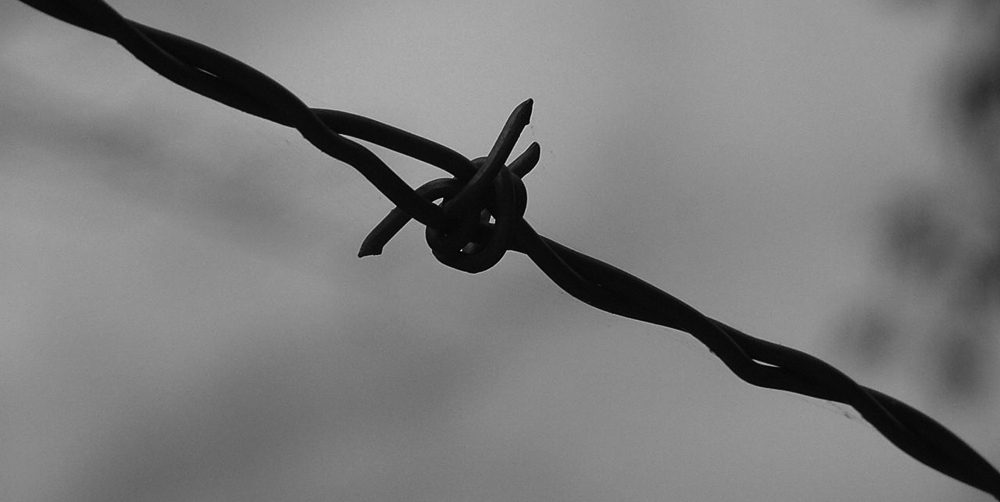Locked out
In Florida, a person can be denied the right to vote if they have ever been convicted of a felony. Embarrassingly, I did not know this when I boarded a plane last week to go volunteer on Hillary Clinton’s campaign....
In Florida, a person can be denied the right to vote if they have ever been convicted of a felony. Embarrassingly, I did not know this when I boarded a plane last week to go volunteer on Hillary Clinton’s campaign. The threat of Donald Trump’s candidacy had felt so acute in mid-September that I figured it was worth a trip to the ‘sunshine state’ to help defeat a demagogue. I understood that the meagre campaigning I would do in the days leading up to the election would make little difference to the overall result. But I thought I could at least convince a few people, maybe a couple hundred, to go to the polls and cast a ballot. As it turns out, this is a lot more difficult when a great many of them are barred from doing so.
My naivety about voter disenfranchisement was laid bare within minutes of beginning my efforts. At the second door I knocked on in the low-income Daytona Beach neighbourhood I was assigned to, an African-American man in his mid-forties answered. When I asked him if he would be supporting Hillary Clinton I was surprised by the candour of his response: “I wish I could,” he told me, “but I’m a convicted felon.” We chatted for a bit and he assured me he would remind his kids to vote. Three doors later I got a similar answer: “I’m not allowed to vote ma’am. I’ve done time.” After I left this man called me back to his house to write down the polling location. His wife wanted to cast a ballot but wasn’t sure where to go. And then again: “I can’t. I’m an ex-felon. Obama never gave me my rights back.”
In the US an estimated 6.1 million people (1 in 40 adults) are barred from voting due to felony convictions. In Florida, where Donald Trump won by fewer than 1.3 points, 10 per cent of the voting age population have had their vote taken away from them. For African-Americans in the state, this proportion doubles. More than 1 in 5 black Floridians are disenfranchised due to current or prior convictions. For the vast majority of these residents, the voting ban is for life. (Although some can apply for an exemption from Florida’s state government).
Even where forced disenfranchisement isn’t for life, like in the UK, the practice is controversial and democratically questionable. Unlike Florida, Britain allows those who have completed their sentences to vote. But we bar everyone currently serving time from casting their vote, regardless of the length of their sentence or severity of the crime. Denying all prisoners the right to vote compromises certain democratic principles. It fails to uphold freedom of expression and, perhaps even more worryingly, undermines our claim to free and fair elections. The European Court of Human Rights has repeatedly ruled that the UK’s blanket ban on prisoners voting contravenes Article 3 of the first protocol to the European Convention on Human Rights: right to a free election. Those with criminal records are impacted – maybe even more so than most – by government decisions. Barring them from voting denies them a say in those decisions and leaves the promise of representative democracy unfulfilled.
If forced disenfranchisement were just about democratic principles, however, then the debate may better belong in philosophy textbooks. But the social consequences of denying people’s voting rights are real and profound. Voting bans can contribute to criminals’ feelings of isolation, alienation and government distrust, thus hampering rehabilitation. When former Florida governor Charlie Christ issued an executive order that restored voting rights to 150,000 non-violent felons in 2007, the rate of recidivism among this group declined by nearly 30 per cent. What’s more, US researchers have found that in places where individuals are denied voting rights, their families, neighbours, and fellow church members are also less likely to go to the polls.[1] This isn’t necessarily causal, of course, and we don’t know if bans like the UK’s which only apply to those still in prison have similar effects. Nonetheless, it certainly appears that the impacts of forced disenfranchisement extend far beyond criminals. Families, communities, and in some elections—including the most recent presidential one—entire countries could be affected.
[1] Weaver, V.M. and Lerman, A.E. (2010) ‘Political Consequences of the Carceral State’, American Political Science Review, 104(4), pp. 817–833. doi: 10.1017/S0003055410000456.
Image: Joshua Davis

